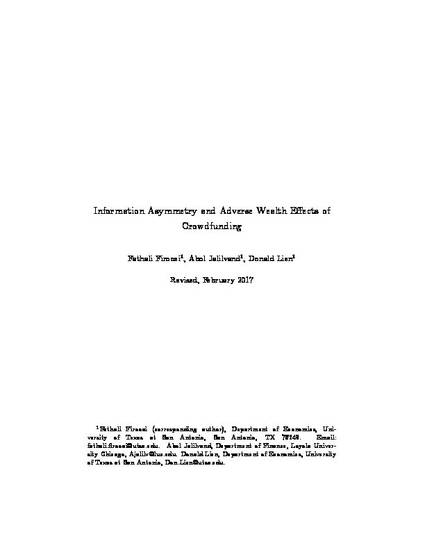
The Jumpstart Our Business Startups (JOBS) Act of 2012 in the U.S. expanded the capital markets so that entrepreneurs can appeal directly to non-traditional small crowd investors for investment funds. The final rules and forms of the JOBS Act became effective in May 16, 2016. Existing literature is thus relatively small but contains ample praises for expected positive consequences of the new crowdfunding laws for the capital markets and for the crowd in general but has only limited analysis on the prospect of adverse wealth effects of crowdfunding for the crowd investors. A limited number of existing studies have highlighted the prospect of a rise in opportunity for fraud as a consequence of information asymmetry between venture capital seekers and crowd investors. This study establishes a new and secondary form of adverse wealth effect of crowdfunding for the crowd in a setting that focuses on information asymmetry between non-accredited crowd investors and accredited traditional investors. The analysis is performed within a two-period, two-state signaling model with information asymmetry between two groups of signal recipients.
- Entrepreneurship,
- equity investment,
- project financing,
- signaling,
- venture capital.
Available at: http://works.bepress.com/abol_jalilvand/4/
